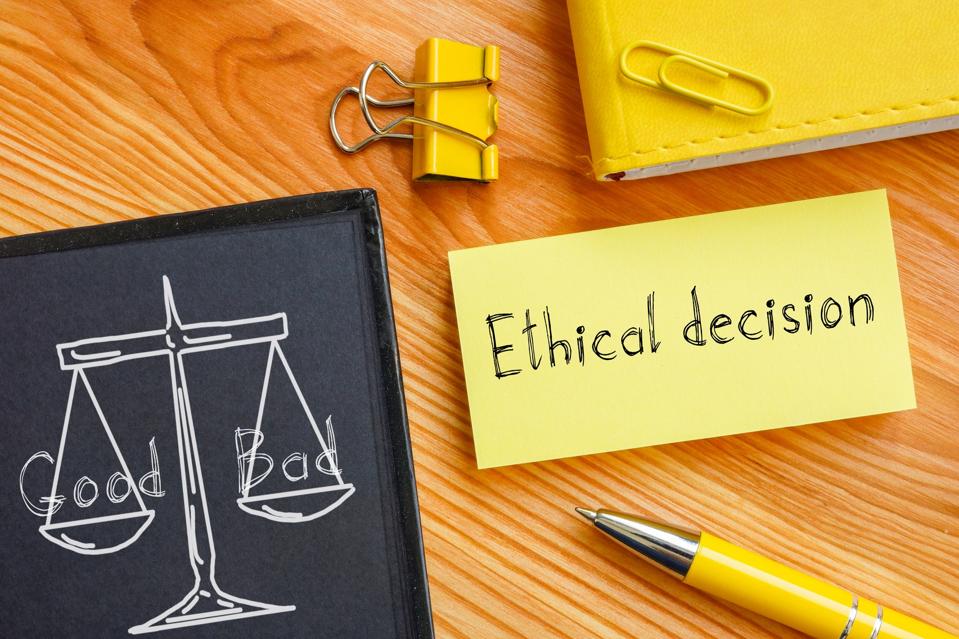The History and The Future of Ethical Decision Making
Five Ethics Questions
1. How can we build an organization with ethical values, attitudes, and beliefs that foster ethical behavior at its core? How can we do that when the onslaught of pressures to be unethical are mounting, simply to compete?
2. What comes first: invention, assessment, or ethical reins? Do any of these need to be the necessary precedent?
3. Are ethical decision-making and competitive risk incompatible?
4. How prevalent is the weighing of the pros and cons of being the first or second to take ethical measures?
5. How have questions 1-4 grown in weight over time, especially in this century?
What Is Progress, Actually?
Let’s consider inventions and discoveries of things (like moveable type and dynamite) but not concepts or beliefs (like voting rights and public education), although all are, indubitably, progress. The things we’ll consider must be demonstrable, notable, quantifiable, measurable, equitable, wealth-neutral, and history-worthy. And they must be, to some degree, civilization changers, thus eliminating such popular items as remote-control TV.
We humans have a history of invention and discovery, the only species to claim such distinction. Our very first invention was stone tools, about three million years ago (although this might be considered a discovery rather than an invention, depending on one’s interpretation of the opening scene of 2001: A Space Odyssey).
Stone tools were the first civilization changers. Another couple of million years later came the controlled use of fire. Well over a half million years after fire came the idea of clothing. Through the millennia, we domesticated animals, institutionalized agriculture, developed alphabets, conducted trade (and accounted for it), told time, harnessed wind power, and so forth.
The Choices We Make
The ultimate question herewith is not about what we’ve invented or when we’ve done it. It is, rather, the choice we make in how we use these things.
In the case of absolutely every invention or discovery we humans have ever made, we humans have figured out both constructive and destructive ways to use them. Absolutely every single one.
Why? The answer comes upon considering not just changes, but the nature of change itself. All physical objects that bring changes – telephones, paved roads, toilets, a Roku stick – can be physically measured in three dimensions: length, width, and height. So can their weight be measured. Change, though, cannot be measured that way, but it can be measured.
Measuring Change Three DImensions
The Nature of Change
Change can be caused by anyone with an idea. Unlike ages, centuries, and millennia past – when change was the domain of the crown or the church, then the highly educated, and later, the world’s first merchants – one could create change through traditional assets: capital, land, shipping lanes, minerals, timber, etc. The wealthy and powerful created change. Today, anyone with an idea has the same potential. Tim Berners-Lee had an idea. Jeff Bezos had an idea. Sergei Brin and Larry Page had an idea. They have all changed civilization.
The Pace of Change
The pace is, as we all observe, ever accelerating. The problem with that is that there is less and less time after one civilization changer then there was after the one before it. The result is less time to think – ethically – about their place in society. Genetic engineering is a case in point.
The Scope of Change
Once a change takes hold, it reaches farther faster than any other before it. It took alphabets 6,000 years to reach from Ur, Athens, Alexandria, and Anatolia to the Americas; it took the internet only 30 years to reach four billion people.
The Position We’re In
Given the nature, pace, and scope of change – along with our demonstrated unawareness of or disinterest in weighing the ethical consequences of our decisions – Ethics will be the single greatest challenge of the 21st -century and beyond. And the lack of attention to Ethics will lead to the greatest disaster(s) of all time. Or we can choose otherwise.
Not Conclusions. Lessons.
- At any given point in history, we are capable of doing more things than we are capable of understanding.
- As more technology is developed that can organize humanity, the more potential we have for chaos.
- If something becomes possible, it becomes expected.
- One step taken in advance is longer than 10 steps to catch up.
- With a set of deeply held principles, you never have to make a decision in your life.
- Making no decision is worse than making a bad one.
- And … If we think about the consequences of our decisions before we make them, we will make better decisions.

